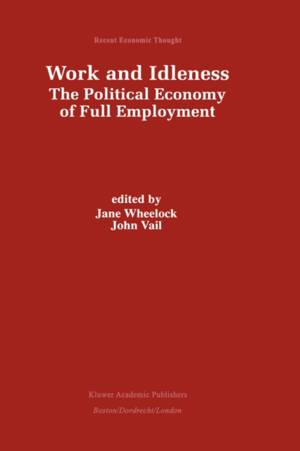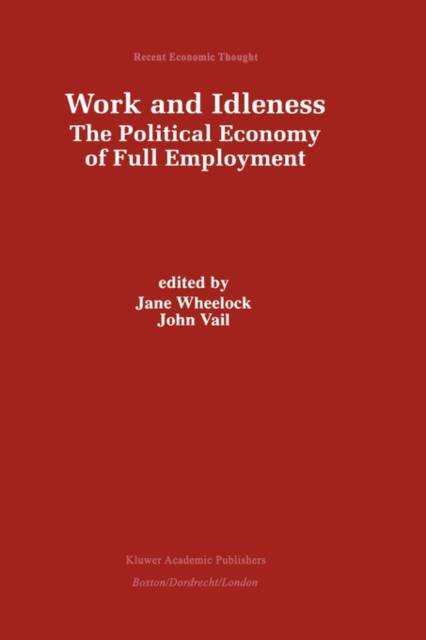
Bedankt voor het vertrouwen het afgelopen jaar! Om jou te bedanken bieden we GRATIS verzending (in België) aan op alles gedurende de hele maand januari.
- Afhalen na 1 uur in een winkel met voorraad
- In januari gratis thuislevering in België
- Ruim aanbod met 7 miljoen producten
Bedankt voor het vertrouwen het afgelopen jaar! Om jou te bedanken bieden we GRATIS verzending (in België) aan op alles gedurende de hele maand januari.
- Afhalen na 1 uur in een winkel met voorraad
- In januari gratis thuislevering in België
- Ruim aanbod met 7 miljoen producten
Zoeken
Work and Idleness
The Political Economy of Full Employment
€ 209,95
+ 419 punten
Omschrijving
Work and Idleness develops the view that redistributing employment is a `feasible capitalist' solution, not just to the unemployment which particular groups suffer, but also to the work that others have to contend with, including many women. Putting the redistribution of employment on the policy agenda opens up debate on how to ensure a more equitable and fulfilling relationship between the ways we gain our livelihoods and the lives we lead.
Growing insecurity in labour markets and changing patterns in the commodification of labour have led to a redistribution of paid and unpaid labour time as the structure of power relations, the gender order, discrimination, and state regulation have been modified. The first main trend affecting insecurity is mass unemployment and the growth of workless households. A second notable trend is a gender-based redistribution of hours worked. The third major trend is a shift from full-time waged work to full-time self-employment.
Part I of this book presents the main economic theories driving the continuing divide between the intensification of work and the extension of idleness. Part II documents the ways in which the shift to mass idleness in advanced industrial countries has hit some groups particularly hard: the youngest and oldest age groups and other groups, including disabled workers, have traditionally been subject to discrimination in the labor markets. Part III provides a set of policy prescriptions.
Growing insecurity in labour markets and changing patterns in the commodification of labour have led to a redistribution of paid and unpaid labour time as the structure of power relations, the gender order, discrimination, and state regulation have been modified. The first main trend affecting insecurity is mass unemployment and the growth of workless households. A second notable trend is a gender-based redistribution of hours worked. The third major trend is a shift from full-time waged work to full-time self-employment.
Part I of this book presents the main economic theories driving the continuing divide between the intensification of work and the extension of idleness. Part II documents the ways in which the shift to mass idleness in advanced industrial countries has hit some groups particularly hard: the youngest and oldest age groups and other groups, including disabled workers, have traditionally been subject to discrimination in the labor markets. Part III provides a set of policy prescriptions.
Specificaties
Betrokkenen
- Uitgeverij:
Inhoud
- Aantal bladzijden:
- 329
- Taal:
- Engels
- Reeks:
- Reeksnummer:
- nr. 66
Eigenschappen
- Productcode (EAN):
- 9780792383901
- Verschijningsdatum:
- 30/11/1998
- Uitvoering:
- Hardcover
- Formaat:
- Genaaid
- Afmetingen:
- 156 mm x 234 mm
- Gewicht:
- 662 g

Alleen bij Standaard Boekhandel
+ 419 punten op je klantenkaart van Standaard Boekhandel
Beoordelingen
We publiceren alleen reviews die voldoen aan de voorwaarden voor reviews. Bekijk onze voorwaarden voor reviews.








